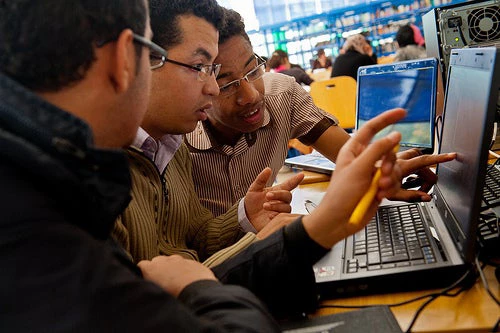In my career as an educator, social scientist and university president, I have worked primarily as an organizational designer and architect. And in doing so, I have been fortunate to have the opportunity to study how universities and other organizations are structured, how decisions related to their design can shape their visions and accomplishments, and how organizations can work together as partners to achieve more than they could alone.
It is my belief that, as the pace and complexity of our global society increases exponentially, there is an urgent need to realign the design and infrastructure of education with the needs of the people our educational systems are intended to serve. While universities have long been vital and powerful drivers of global innovation and economic development, they must now be willing to break free from outmoded paradigms if they hope to continue achieving meaningful progress.
With this motivation in mind, Arizona State University (ASU) has spent more than a decade evolving a new model for 21st century higher education. Known as the New American University, it is dedicated to the simultaneous achievement of excellence and access, an endeavor long thought impossible by academic leaders. Based upon that design and my experience over the past eleven years, I offer the following observations and examples as a means of facilitating discussion about the role of universities in our global development community as well as the imperative to foster innovation in all of our global institutions:
1. Universities are unique kinds of global institutions. Universities are institutions intended to be durable and enduring. When wisely designed, governed and financed, they are unique entities in our American democracy and in our global society. Universities are neutral conveners, assemblers of talent, and unmatched idea factories where the passion, creativity, and idealism of great minds, young and old alike, can be applied to problem-solving and advancing our societal and economic well-being.
2. Universities must adapt and innovate. Contemporary universities have a responsibility to transcend traditional disciplinary limitations in pursuit of intellectual fusion, and develop a culture of academic enterprise and knowledge entrepreneurship. They must also be prepared to begin delivering higher education at scale – in a manner that bestows status upon universities based upon the outcomes they achieve and their breadth of impact rather than the exclusivity and quality of their incoming freshman class.
3. Universities must embrace their cultural, socioeconomic and physical setting. It is imperative that universities be socially embedded, thereby fostering development through direct engagement. Universities must work creatively and be willing to take risks to become even greater forces of societal transformation.
4. Universities must focus on the individual. Universities need to foster student success by becoming student-centric – rather than faculty-centric. Successful universities will be those capable of being nimble, anticipatory, imaginative and reactive. They must provide unique environments that prepare students to be “master thinkers” able to grasp a wide array of skills and comprise the most adaptable workforce the world has ever known.
5. Universities must become effective partners for global development. Only through the proliferation of networks between like-minded alliances can transformation occur at the scale that is immediately needed in order to advance our present global knowledge economy. Our communities must open their eyes to this imminent future and transform their thinking to see universities, not as self-indulgent “people factories,” but as valuable idea generators with vast influence and the potential to manifest technologies and concepts that can change lives the world over.
Change is not easy. Modification and growth in large, complex institutions that are part of an increasingly global system of commerce, trade and interchange can be particularly challenging. But innovation and adaptation are needed now more than ever before in our international higher education infrastructure and in our global development institutions. We must work together to build what we need, not simply replicate what has existed before, and I welcome your ideas and feedback on the role of universities in advancing global development.
Related



Join the Conversation